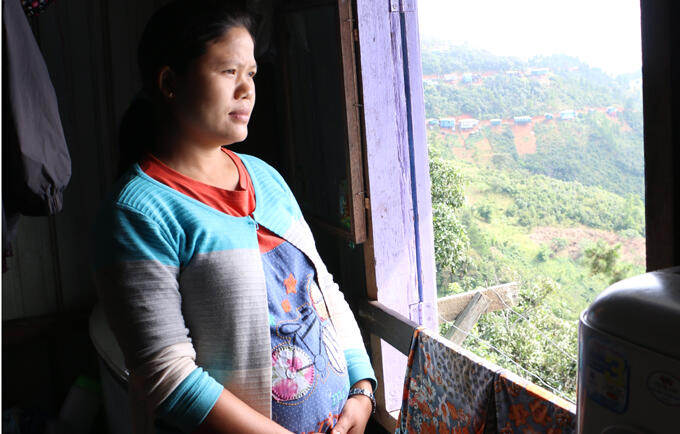CHIN, Myanmar - Ngun Hlei Tling was pregnant with her third child when the midwife detected a serious complication. The midwife knew immediately that Hlei’s life was in danger. She helped rush Hlei to the hospital.
Myanmar have no access to antenatal care during their pregnancy
Hlei was lucky to have seen a midwife. Not all women in Myanmar do. One in five women in Myanmar have no access to antenatal care during their pregnancy. Only three of every five births are assisted by a skilled health worker. Hlei was also lucky that her home was close to a hospital. Many women in Myanmar’s remote Chin State, where Hlei lives, would have to travel for many hours on dirt roads on a borrowed motorbike to get to a hospital.
These are some of the reasons who every year, 2,800 women in Myanmar die from preventable causes related to childbirth and pregnancy. At 282 per 100,000 live births, Myanmar’s maternal mortality ratio is the second-highest in ASEAN. Every day, eight women die from preventable causes related to pregnancy, childbirth and care in the early weeks after birth. In Chin, the maternal death rate is the highest in Myanmar at 357.
The midwife saved her life
But Hlei survived. The correct diagnosis by a skilled midwife made the difference between life and death.
“I felt very unwell for many months during that pregnancy. But what could I do? I carried on with my work making snacks for selling at the market. I didn’t stop to think that there could be a serious problem until I saw the midwife. I am grateful to her that she acted so quickly” says Hlei.
Midwives are frontline health workers. They often handle life-and-death situations in remote villages on their own. When well trained, midwives can avert two-thirds of all maternal and newborn deaths.
Building a strong midwifery workforce
baby is healthy too.”
Yet midwives often lack the skills needed to perform their job well. This is why UNFPA works to professionalize midwifery in Myanmar, and to build a more competent midwifery workforce. Together with the Government and other partners, UNFPA has helped develop Myanmar’s first Midwifery Workforce Policy Framework. UNFPA has also supported a new midwife curriculum that raises the standard to a 2-year Bachelor of Medical Science degree. UNFPA also provides training to midwifery school faculties in hands-on basic emergency obstetric care, and essential newborn care.
Hlei’s third pregnancy ended in a miscarriage in the hospital. Today, she is pregnant again. Her fourth pregnancy.
“This time I feel good. I feel strong. And the midwife tells me baby is healthy too.”
This story was produced in collaboration with Save the Children


